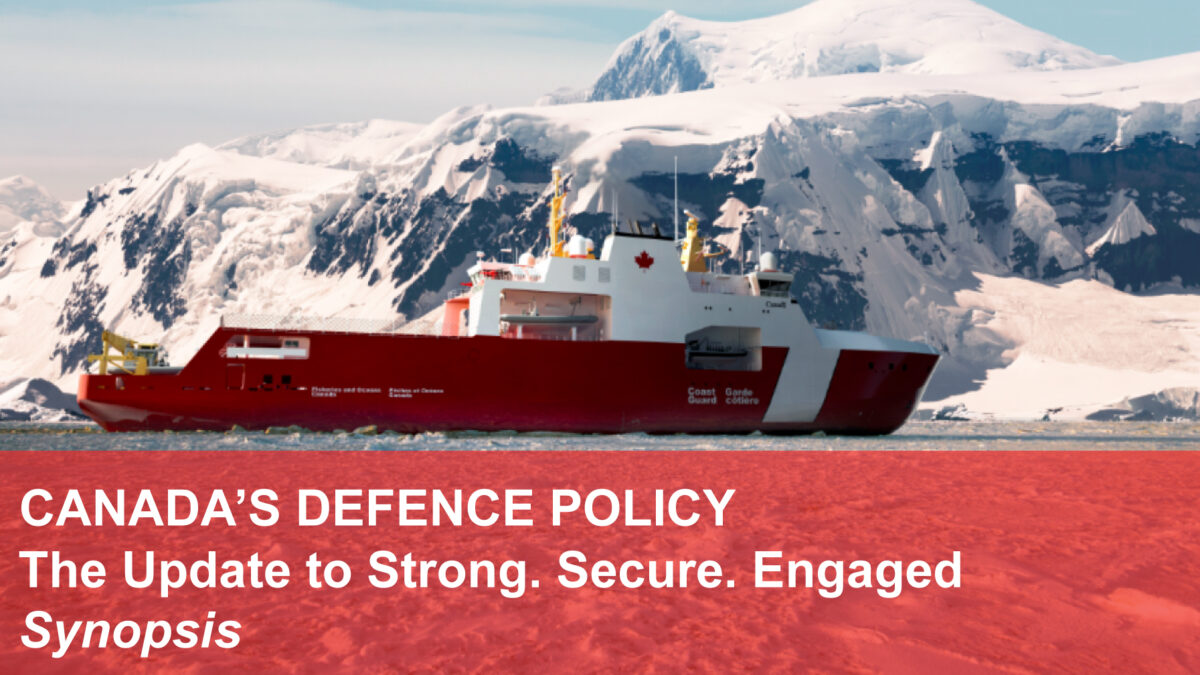Wishing won’t make it so.
“Peace on Earth.” There can be no more fervent wish as we turn the calendar to 2024.
But wishing it so will not make it so, and that reality recalls a variation on the adage that: “All that is required for states and actors with ill intent to triumph is for good nations to do nothing.”
Canada is a “good nation”, civilized and responsible, a most-favoured nation with geography, resources and allies that make us the envy of most.
Yet Canada is hesitating. The update of our defence policy is long overdue. In its place grows a vacuum of direction and intent that daily increases doubt in the minds of Canadians and allies and suggests opportunity for those with ill intent.
Keeping conflict far, and our Arctic ours.
Theatres and Threats. The foundation of a defence policy is an assessment of the theatres in which Canada may operate and the rapidly evolving threats it must counter: on land, in the air, on and under the water, and in cyberspace.
Deterrence matters here too. Canada’s Arctic – remote yet increasingly accessible – is full of valued resources, and our sovereignty over its waters is contested.
Strategy and Capabilities. Canada has long recognized that we are better to deter and address conflict at its origins rather than await its arrival at our doorstep or affect our primary areas of global economic activity. This is not just in Canada’s interest; it is the essence of our national defence strategy.
Several capabilities are required, including the means to operate far from Canada in close concert with allies for long periods of time, and to be secure within our domestic and deployed cyberspace. Within these are the strategic capabilities – submarines and special forces – whose presence or even potential presence bring disproportionate deterrent and operational effect.
Added to this is Canada’s unique requirement to assert its sovereignty and exercise control over, on and under its Arctic waters and throughout its economic exclusion zones.
Putting money and culture where our words are.
Funding, Organization and Procurement. Policy matters only if accompanied by funding and leadership that turns words into actions and actions into results. Canada is a G7 nation and a NATO laggard: an ill-fitting contradiction of strength and weakness.
The good news is there’s lots of room for improvement. Some can be derived from organizational change, but most must come from determined leadership, increased internal capacity, and substantially greater funding. Speed and scale matter.
People and Culture. The men and women who serve – in uniform and in our defence team – are the core of our capability.
Excellence in people demands excellence in leaders. The answer is not to abolish the institutions that develop those leaders, but to clearly understand and fix the issues, and hold people accountable as part of a stronger, modernized culture.
The answer is also about building a modern social contract, in which a military member can focus on their mission confident in the knowledge that the military is there to support them and their partners and families when they return.
It’s in our interest to matter.
Henry Kissinger’s century of study and observation is summed up in his advice that: “Nations don’t have friends; they have interests.” The defence of Canada’s interests starts with certainty of government intent provided in a clear, current, and resourced statement of policy.
My purpose here is to encourage Canada to consider its favoured circumstance and consequent responsibilities and bring forward a defence policy that matters to Canada, to Canadians, and to our interests at home and around the world. Global defence and security are critical to Canada’s future. We should be doing our part.

